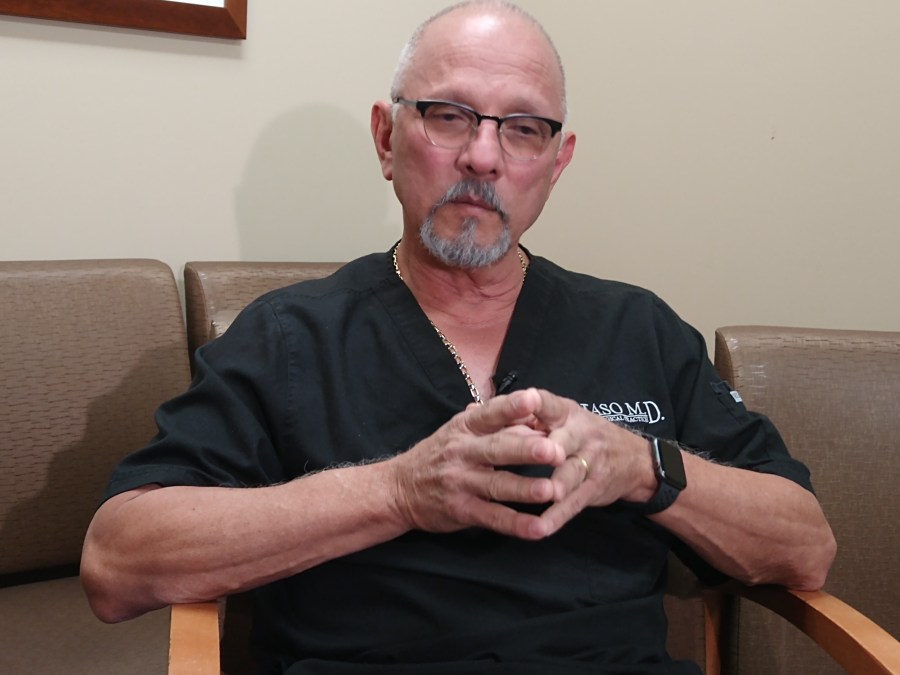Emergency room surgeon deals with lingering illnesses, wounds treated with antiquated methods
LAREDO, Texas (Border Report) — Working on the border with Mexico, Dr. Rene G. Jaso often sees health problems that are rare elsewhere in the United States.
That includes lingering infections that should’ve gone away with the proper treatment, wounds tended to by methods outdated by today’s medical standards and damage to organs that timely screenings could’ve prevented.
Jaso, an emergency room attending physician in Laredo, primarily sees this in the immigrant population, which he says constitutes between 25 and 30 percent of the patients he treats. Those patients show up with health problems that began to develop before the migrant arrives in the United States.
“We see bowel obstruction, we see bleeding, end-stage liver disease that would have been intervened earlier in our system here,” Jaso said.

Another trend is migrants self-medicating without physician oversight, which leads to complications.
Jaso is a contract surgeon delivering care in a region where a lot of migrants pass through and where many stay to call Laredo home. He attributes some of their issues to insufficient care received in their home countries.
“You see things that are being done that predate what is being done stateside; procedures done several years ago that we don’t do in the United States,” he said. “Mexico has some fine physicians, including just south of us, but the availability of resources seems to be limited.”
By that he means the migrant sought treatment at a hospital that was affordable to him or her, but the facility lacked an experienced physician or was forced to stop treatment after running out of money.
Faced with such lingering health issues, the migrant ends up coming to a U.S. hospital once he or she is on this side of the border.
“Here in the U.S., medicine is readily available to anybody. Emergency rooms provide care irrespective financial resources. No questions are asked here, people will be taken care of. That’s true of citizens, immigrants or anyone else,” he said.
A long history of working with migrants
Jaso was still in medical school at Michigan State University when he began to treat patients who are migrants.
“I started a migrant clinic that tended to a wide variety of patients, primarily the migrant worker,” he said.
A stint in the Army also took him to places like Ethiopia, Iraq and the Middle East.
“I was responsible for several humanitarian outreaches,” he said. “I was responsible for the health care of the locals and our citizens in the embassy. It was quite an experience there with infectious diseases and trauma. I saw a lot of international soldiers.
“I tried retirement for three weeks and that didn’t work. I was lucky enough through friends that I was able to come back to the emergency room,” he said.
Then he opened a practice in South Texas that he ran for 30 years. He closed that practice for health reasons and retired.
His roles as a contract physician and surgeon aren’t the only things he does. He’s also one of the instructors of the new medical residency program in Laredo. Now he’s teaching future doctors the discipline of the trade, something he considers a privilege.
“If you happen to save lives, and that’s happened a couple of times, it is something beyond words,” Jaso said.
Visit the BorderReport.com homepage for the latest exclusive stories and breaking news about issues along the United States-Mexico border










